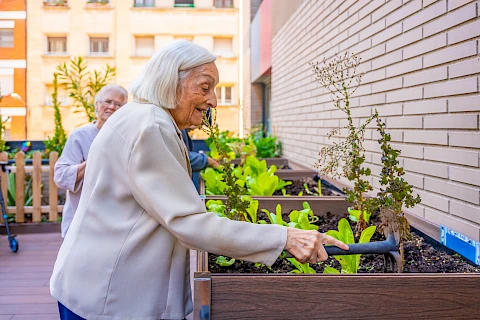
For many seniors, gardening is more than just a hobby. It's a source of joy, serenity, and fulfillment. Engaging with nature through gardening can foster physical, mental, and emotional well-being, making it an essential activity for seniors. Unfortunately, age-related challenges can sometimes make gardening a difficult task for our senior loved ones. This is where caregivers, with the right strategies, can make a significant difference.
The Benefits of Gardening for Seniors
Gardening offers boundless benefits to seniors. These are:
Physical Benefits
Physically, it functions as a low-impact exercise that promotes mobility, strength, and flexibility. The activity also stimulates the brain, encouraging cognitive function, which aids in problem-solving and memory. It even serves as a preventative measure against dementia and related conditions.
Emotional Benefits
Emotionally, gardening can have transformative effects. It provides a sense of achievement, which often boosts self-esteem and overall mood. The calming nature of gardening can also help reduce stress levels, providing a therapeutic escape from daily worries.
Role of Caregivers in Adaptive Gardening
The role of caregivers in this context is crucial. Caregivers can assist in modifying gardening activities to accommodate physical limitations, thus ensuring the activity remains safe and enjoyable. Additionally, participating in gardening alongside seniors can provide an opportunity to strengthen interpersonal relationships. Caregivers, too, can reap the benefits of gardening; it can offer a moment of respite and simultaneously promote their physical and mental well-being.
Strategies for Adaptive Gardening
Adaptive gardening incorporates various modifications to make gardening more accessible for seniors.
Raised Gardening Bed
One popular modification is the use of raised beds. Raised beds bring the garden to a comfortable level, minimizing the need for stooping or kneeling. Raised beds not only make the joints easier to move but also make the plants more accessible. Caregivers can help with the construction and maintenance of these beds, tailoring them to the senior's unique needs and preferences.
Adaptive Tools
The provision of adaptive tools is another essential strategy. Specialized gardening tools, designed with ergonomic considerations, can make a big difference. These tools are generally lightweight, easy to grip, and require less strength to use compared to traditional gardening tools. Such adaptations can make the experience less physically taxing and more enjoyable for seniors.
Manageable Tasks
Breaking gardening tasks into manageable steps is a key strategy. Rather than trying to complete all gardening tasks in one go, caregivers can help seniors pace themselves. This step-by-step approach reduces physical strain and prevents potential overwhelm. It's okay to spread tasks over several days or even weeks. Remember, the goal is for the activity to be enjoyable, not exhaustive.
Senior Helpers Lancaster County Can Help Seniors Garden
Gardening holds great potential as a therapeutic activity for seniors. With the right adaptations and caregiver assistance, it can be an enriching experience that promotes health and happiness. Caregivers play a vital role in making gardening a more accessible and enjoyable pastime for seniors. Through using raised beds, offering adaptive tools, and breaking tasks into manageable steps, caregivers can help seniors reap the myriad of benefits gardening offers.
If you or a loved one need assistance with adaptive gardening or any other age-related challenges, we at Senior Helpers Lancaster County are here to help. We serve the communities of Denver, Stevens, Ephrata, Akron, and Mount Joy. Our team is committed to supporting seniors in living fulfilling lives. Reach out to us today to learn more about our services.